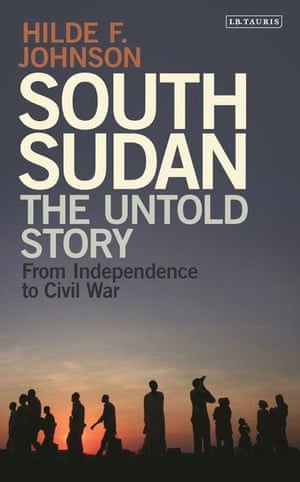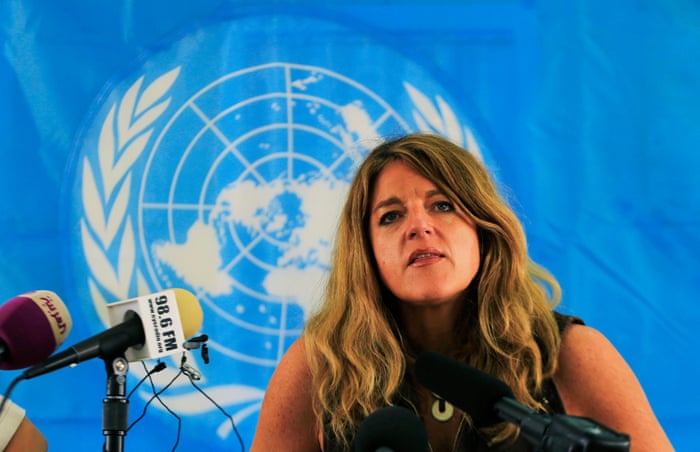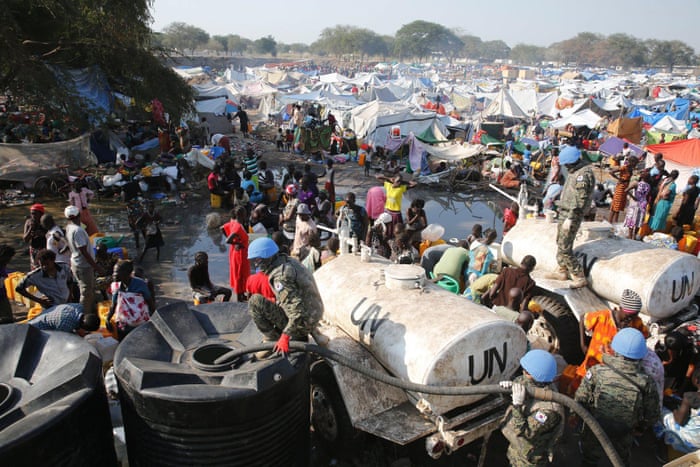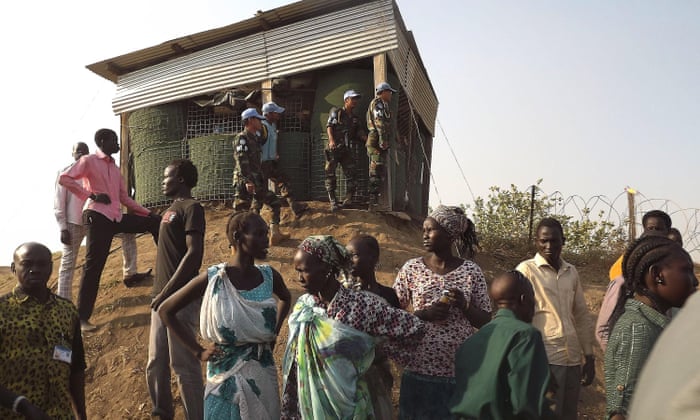Was this a barracks brawl, or something much bigger? Soldiers had gone on the rampage before. Although the atmosphere had been tense at the meeting of the National Liberation Council and Riek Machar and several others had stayed away on the second day, there had been no sign at this time that any faction would turn to violence. A South Sudanese friend texted me from the town centre. He had passed the president’s compound on his way home. Soldiers and check points were everywhere. Tanks were moving. Shooting and explosions were becoming louder and closer.
Dark December night
 Was there anything I could do? I had agreed with the president [Salva Kiir] that in a crisis of national magnitude we would immediately be in touch. But I heard nothing from him, the government or his people. Should I call him? I started scrolling my phones. Not knowing the scale of this, I decided to get in touch with the security people before I disturbed the president. I should be able to get hold of them. Reports from UN security indicated that the fighting was within the security forces. I checked my watch. It was close to midnight.
Was there anything I could do? I had agreed with the president [Salva Kiir] that in a crisis of national magnitude we would immediately be in touch. But I heard nothing from him, the government or his people. Should I call him? I started scrolling my phones. Not knowing the scale of this, I decided to get in touch with the security people before I disturbed the president. I should be able to get hold of them. Reports from UN security indicated that the fighting was within the security forces. I checked my watch. It was close to midnight.
At around 00.15 the shooting seemed to abate. Was the situation coming under control? Were those involved regrouping? One of my phones rang. It was Majak D’Agoot, the former deputy defence minister and a former SPLA (Sudan People’s Liberation Army) general:
If this is what it seems [...] it can trigger major ethnic killings. Hilde – you have no idea what can happen in this country, but this can set off ethnic violence between the Dinka and the Nuer which can drive us all down. This can become another Rwanda.
I had never heard Majak like this. He urged me to call both the president and Riek Machar and ask them to make a public statement calling for restraint and for an immediate cessation of violence. “You are the only one who can reach both of them and convince them,” Majak said. He thought if their respective forces heard such an instruction from their leaders, they would stand down.
....
I tried to get to Riek on the five or six mobile numbers I had for him. The phones were either switched off or unanswered. I sent the same text message to all the phones, asking him to call me back. At 3am my phone rang. It was Riek, from a new and unknown number. I urged a public statement calling for calm and asking forces loyal to him to stop the violence. He asked whether the president was going to do the same. I told him that I had spoken to the key security ministers and that I expected to speak to the president very soon. Riek said that he would consider a statement if the president would do the same. He said that his situation was now so serious that he had considered seeking refuge in a foreign embassy. He did not ask for UN protection or other assistance from Unmiss, and I made no offer. I still thought it possible to stop the violence, and said that he now was needed to take control of forces loyal to him and to prevent further bloodshed. At that point we had not yet received reports about any targeted ethnic killings.
At about 5am I was able to get through to the president, and told him of my conversation with Machar. Kiir listened carefully to my entreaties and said that a public statement would come soon, but that he needed to control the security situation first. I urged him to make the statement now, and not wait, but he was unmoved. I tried to call Machar back, but his phones were switched off.
...
I learned later that fighting within the presidential guards had spread with lightning speed throughout the barracks. The noise I had heard near my residence had probably come from near the SPLA ammunition store in the New Site area, not far from the main Bilpam barracks. A firefight had occurred between loyal presidential guards and predominantly Nuer renegades. In the early morning hours the fighting had spread to nearby residential areas. Supported now by government soldiers with tanks, the security forces pushed the renegades southwards, out of New Site and surrounding neighbourhoods.
...
‘Attempted coup’
The government’s version of subsequent events was that at 18.30 on 15 December, during the closing of the National Liberation Council meeting, unidentified persons had fired into the air near the Nyakuron cultural centre, and escaped. This was a signal for an attack on the Giyada military barracks by soldiers of the presidential guard loyal to Machar. According to the government, these had first tried to get keys to the arms depot, failing which they attacked a group of republican guards loyal to the president to break into the armoury. In the process an officer was shot and killed. Fighting then broke out. This was followed by an attack at Bilpam and, in the early morning hours, on other SPLA posts. The attackers broke into arms depots and stole arms and uniforms at both HQ locations. To the government this confirmed planning rather than a spontaneous outburst.
Another version of events was that President Kiir had decided to disarm Nuer members of the presidential guard, and that they had resisted. They broke into the armoury, where their weapons were stored, and fighting started. Machar’s group and others loyal to him adopted this version. They linked an increased number of Dinkas in the presidential guard to these events, all of which were part of an elaborate plan, they said, with coordinated attacks and killings in predominantly Nuer neighbourhoods. The very same new Dinka recruits, from Luri, were alleged to have had a leading role in the attacks agains the Nuer. They claimed that the “attempted coup” was just a cover for these actions.

Another possibility was that a random shooting incident simply got out of hand and led to the escalation. Concluding his briefing, foreign minister Marial said that anyone implicated in this (ie the attacks and “attempted coup”) would be arrested. He advised diplomats to deny entry to embassy premises to all South Sudanese nationals. The government would respect the inviolability of embassies, but countries sheltering anyone suspected of a role in the attacks must inform the government of their presence. The hunt was on for Riek Machar, who remained at large. Later in the day, the US embassy, through its Twitter account, denied rumours that he had taken refuge in its compound.
When the minister further suggested that diplomats sheltering South Sudanese civilians should advise them to go home, I wondered whether this was a tacit reference to the UN. We had been sheltering people at our bases since early morning....

The grip of fear: no return home
Humanitarian partners worked around the clock with Unmiss logistics colleagues to keep the UN bases cholera free for a very long time. Following the first cholera cases, however, two government ministers blamed Unmiss and cited the experience of Haiti, where peacekeepers had been blamed for being the origin of the epidemic. This comparison was factually incorrect; the South Sudan outbreak began elsewhere, and our bases remained cholera free for much longer than other areas. It was also deeply unfair to all the UN staff and humanitarian partners who had worked so hard, day and night. As a response to this and a host of other challenges within our bases, new protection of civilian sites were established, allowing improvement in living conditions. As the fighting showed no signs of abating, most civilians were too afraid to return home and remained under UN protection. They were in the grip of fear.
The US had decided to pursue targeted sanctions against individuals alleged to have been involved in atrocities and human rights abuses. The EU followed suit. The conflict had at this time, according to established definitions, reached the threshold of civil war.
How could this happen? And how could the conflict escalate so quickly, and seemingly take on a life of its own? To understand this, we need to take a closer look at the security sector.
It is the heart of the matter.
